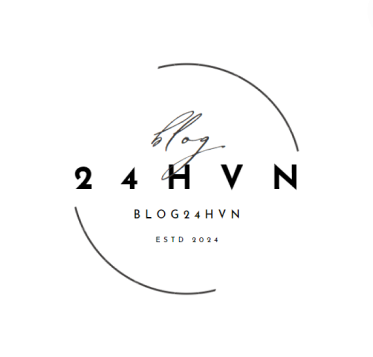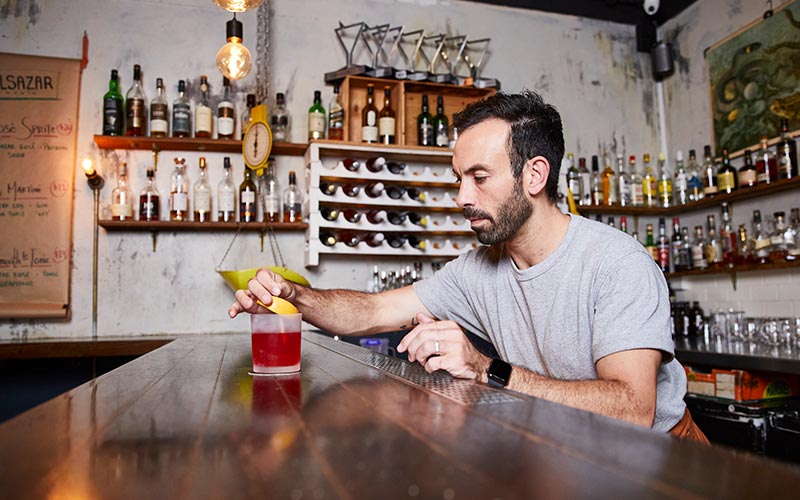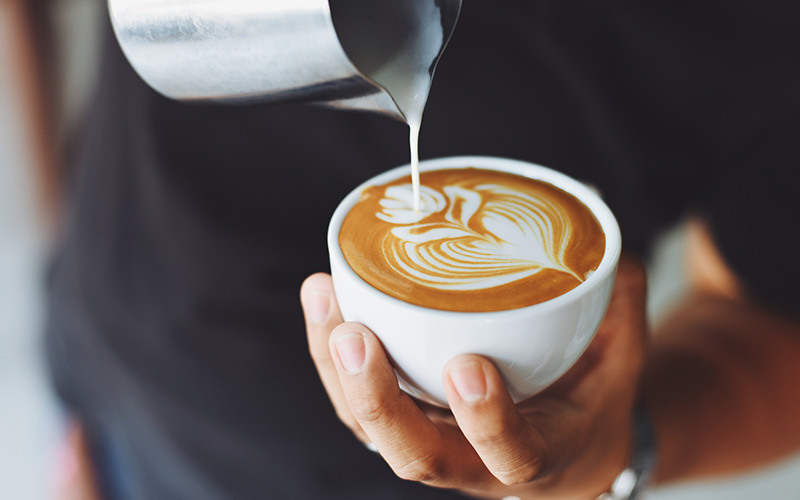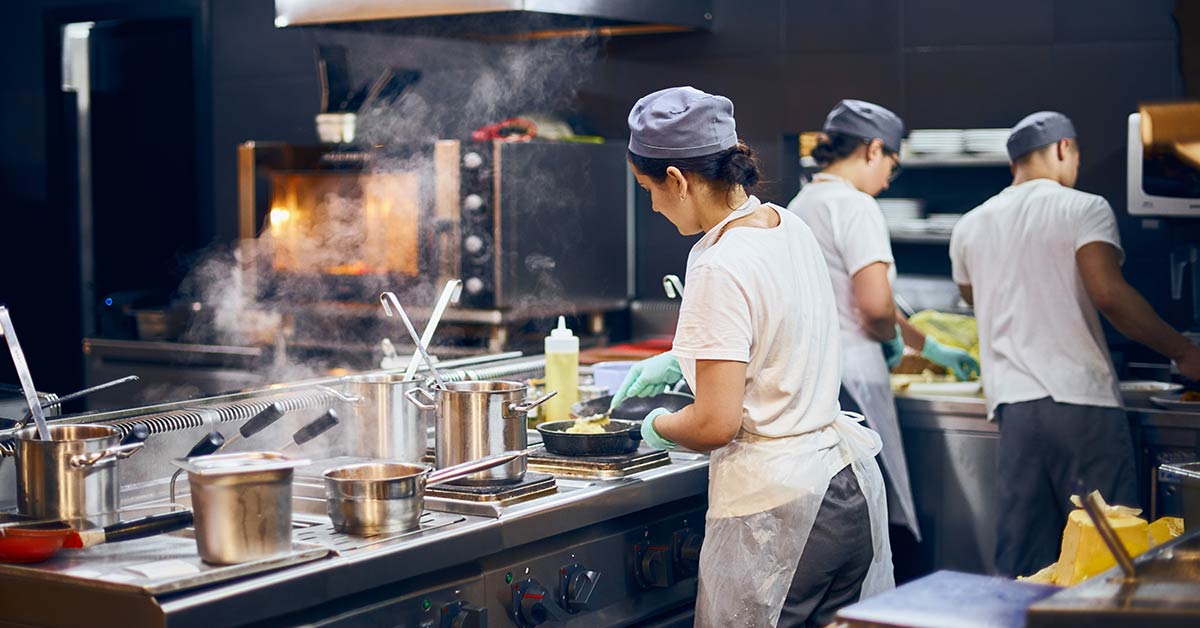
15 Restaurant Staff Roles & Responsibilities: Build Your Dream Team
If you’re looking to build a team for your new restaurant, one of the first steps to take is outlining which roles you’ll need to ensure your venue runs like clockwork and what each of those roles is responsible for.
While every restaurant is different and will require a variety of roles, most restaurants will need at least a handful of front-of-house (FOH) and back-of-house (BOH) staff to run efficiently.
We’ve outlined 15 of the most common restaurant staff roles and responsibilities, so you can start the recruitment process and build your team.
Front-of-house roles & responsibilities
Front-of-house roles can range from waitstaff to cashiers, bussers and bartenders. The exact roles you’ll need for your restaurant will vary. If you’re running a QSR, for example, you’ll likely need several cashiers but might not need a host. On the other hand, a fine dining restaurant is less likely to need a cashier but might require skilled bartenders and a Maitre’d.
1. Host
The host, also known as a Maitre’d, greets guests when they first arrive at your venue. They’re often the first person guests will come into contact with in your restaurant and should always be well-presented and friendly to ensure a great first impression.
Responsibilities
- Greet guests
- Promptly seat guests
- Manage walk-ins and waitlists
- Manage reservations over the phone and online
Characteristics
- Friendly
- Polite
- Organised
- Work well under pressure
2. Server/waitstaff
Waitstaff play an instrumental role in the customer experience and are responsible for looking after guests and taking orders during their time in the restaurant.
Responsibilities
- Welcome and seat guests (if the restaurant doesn’t have a host)
- Take food and drinks orders
- Have a good knowledge of the menu and can make recommendations
- Place orders into your point of sale (POS) or relay orders to the kitchen
- Checking guests are happy
- Manage complaints and communicate with the kitchen or management
- Take payment
Characteristics
- Friendly
- Polite
- Work well under pressure
- Juggle multiple tasks
3. Bartender
A restaurant bartender is often a specialised role that is responsible for making and serving drinks from wine to beer, soft drinks and cocktails.
Responsibilities
- Take orders from customers at the bar and from waitstaff
- Process payments
- Have a wide knowledge of cocktails and can make them promptly
- Good knowledge of other beverages on the menu and can make recommendations
Characteristics
- Friendly
- Good knowledge of beverages
- Works well under pressure

4. Barback
A barback supports the bartender to ensure the bar operates smoothly and is always well stocked so drinks can be made as efficiently as possible. While a barback is a FOH role, they’ll rarely have direct interactions with customers.
Responsibilities
- Ensure ice is always topped up
- Prepare garnishes
- Restock inventory
- Wash and restock glassware
Characteristics
- Organised
- Attention to detail
- Unobtrusive
5. Busser
Bussers work closely with your waitstaff to ensure tables are cleared in a timely manner, either in between courses or at the end of a meal.
Responsibilities
- Clearing dishes from the table in between courses in a timely manner
- Clearing dishes from the table once the meal is finished
- Pouring water for guests
Characteristics
- Observant
- Unobtrusive
- Team player
6. Runner
Runners also work closely with waitstaff, delivering food and drinks to the table when they are ready. Runners are usually found in larger restaurants, and oftentimes in smaller establishments, waitstaff will be required to perform these tasks.
Responsibilities
- Taking food from the kitchen and delivering to the appropriate table
- Taking drinks from the bar and delivering to the appropriate table
- Have a good understanding of the menu
Characteristics
- Friendly
- Team player
- Good at following instructions
7. Barista
Baristas are responsible for making coffee and any other hot beverages. While not all restaurants will require a barista, those that offer breakfast and lunchtime service will often need someone dedicated to the role.
Responsibilities
- Good working knowledge of different coffee types and beverages
- Competent at using an espresso machine
- Ensuring the coffee station is clean and tidy
Characteristics
- Works well under pressure
- Knowledgeable about coffee
- Friendly

8. Cashier
Cashier roles will most often be found in QSR restaurants and are responsible for taking orders and payments at the counter. If your restaurant doesn’t require a dedicated cashier, the waitstaff will be responsible for taking payments.
Responsibilities
- Greeting customers when they come to the counter to order
- Taking orders and inputting them into the POS
- Having a good understanding of the menu and being able to answer questions
- Processing payments
Characteristics
- Friendly
- Works well under pressure
- Takes initiative
Back-of-house roles & responsibilities
Back-of-house roles can range from head chefs to dishwashers. The exact roles you’ll need for your kitchen will depend on the size of your restaurant and the extent of your menu.
9. Head chef
The head chef is in charge of the kitchen and manages everything from the menu to daily specials, inventory and the kitchen staff. Your head chef should have considerable experience managing kitchens and have some kind of culinary qualification.
Responsibilities
- Menu and specials planning
- Developing recipes
- Managing the BOH team
- Overseeing kitchen operations
- Hiring kitchen staff
Characteristics
- Management experience
- Works well under pressure
- Highly qualified/prior experience
10. Sous chef
The sous chef is the head chef’s second in command and is responsible for ensuring that all orders are made to standard and in a timely manner.
Responsibilities
- Preparing food
- Overseeing kitchen staff to ensure food is prepared correctly
- Inventory management, receiving inventory orders and stock counts
Characteristics
- Team leader experience
- Works well under pressure
- Qualified
11. Prep cook
A prep cook is an essential BOH team member and ensures all food and ingredients are prepped and ready to be cooked by the line cooks.
Responsibilities
- Washing raw produce
- Chopping ingredients
- Prepping workstations, so they’re ready for use
- Cleaning workstations
- Ensures food and ingredients are stored correctly and safely, according to hygiene and food safety standards
Characteristics
- Works well under pressure
- Organised
- Good at following instructions

12. Line cook
Line cooks cook and prepare dishes, ready to be sent out to customers. Line cooks are often assigned to a certain section of the kitchen, such as the grill, and are responsible for preparing orders that are relevant to their station.
Responsibilities
- Work closely with team members to cook orders in a timely manner
Characteristics
- Works well under pressure
- Organised
- Good at following instructions
13. Dishwasher
Dishwashers are responsible for cleaning all of the dirty crockery, glasses and cutlery that comes into the kitchen so it’s ready to be used again. Dishwashers often don’t need prior hospitality or kitchen experience, and many progress to other roles within the kitchen.
Responsibilities
- Wash dirty dishes, glasses and cutlery
- Manning the dishwasher and dish cleaning station
- Ensuring the area remains clean and tidy
- Ensure dishes, cutlery and glassware are stored correctly
- Help with wider kitchen cleaning
Characteristics
- Physically fit
- Attention to detail
- Team player
Restaurant management roles and responsibilities
Working in a restaurant can be hectic, and it’s important to have a strong leadership team that can steer the business in the right direction, manage team members effectively and drive sales.
14. Restaurant manager
A restaurant manager is responsible for overseeing the entire restaurant operation, ensuring smooth communication between FOH and BOH and keeping the owner informed on performance. A restaurant manager should have extensive hospitality experience, have worked either FOH or BOH in the past and should understand what it takes to run a successful restaurant - from managing finances to marketing.
Responsibilities
- Hiring and training staff
- Employee scheduling
- Managing accounts/bookkeeping
- Ordering inventory and inventory management
- Oversee marketing activities
- Managing team members
- Run reports to analyse performance
- Creating initiatives to grow the business
Characteristics
- Management experience
- Organised
- Innovative
15. Assistant manager
An assistant manager assists the restaurant manager in their day-to-day duties. Not all restaurants will need an assistant manager, and this will depend on the size of your restaurant, how many staff you have and how big your day-to-day operations are.
Responsibilities
- Assist the restaurant manager where needed
- Run team meetings
- Help with inventory
- Execute marketing activities
- Assist with employee scheduling
Characteristics
- Takes initiative
- Team player
- Oganised
What job roles does your restaurant need?
Every restaurant is different, and the number of roles you’ll need to efficiently run your venue will depend on the size of your restaurant, your menu and opening hours.
While this list won’t cover every possible role in a restaurant, it outlines the most common and important restaurant roles and responsibilities that you’ll need to build a successful team.
Good luck!
Link nội dung: https://blog24hvn.com/all-staff-in-this-restaurant-a61331.html